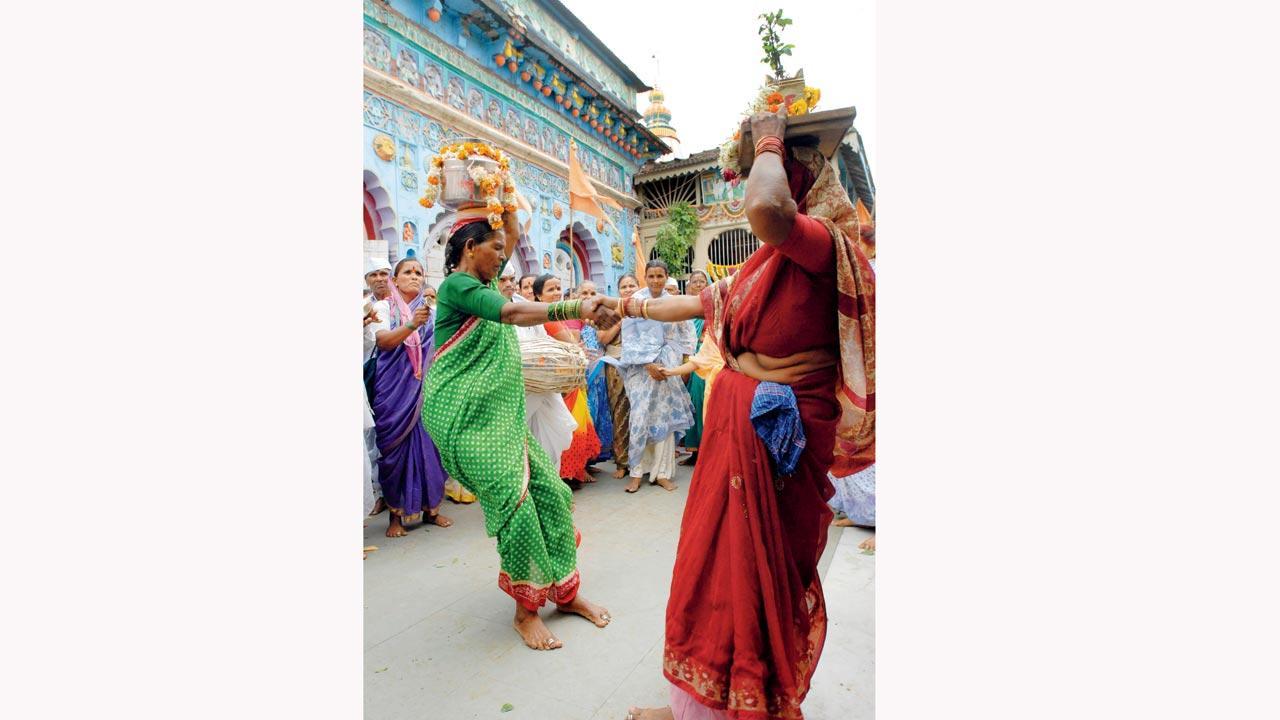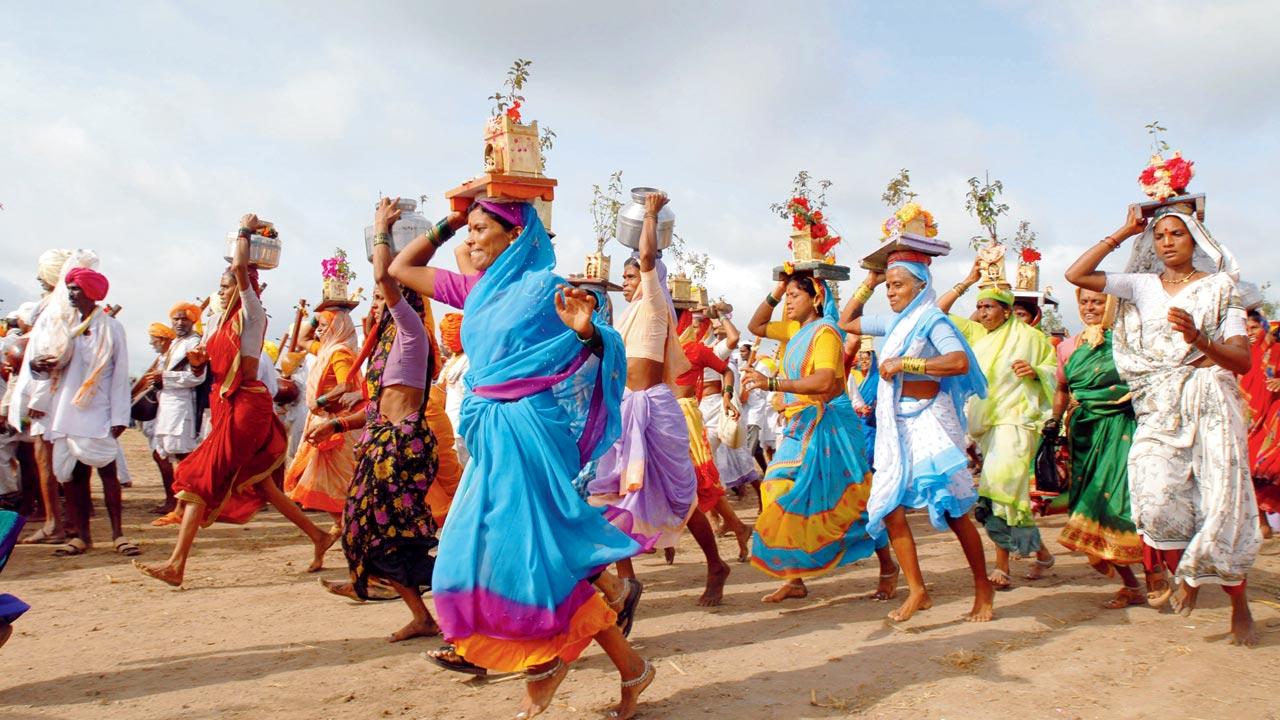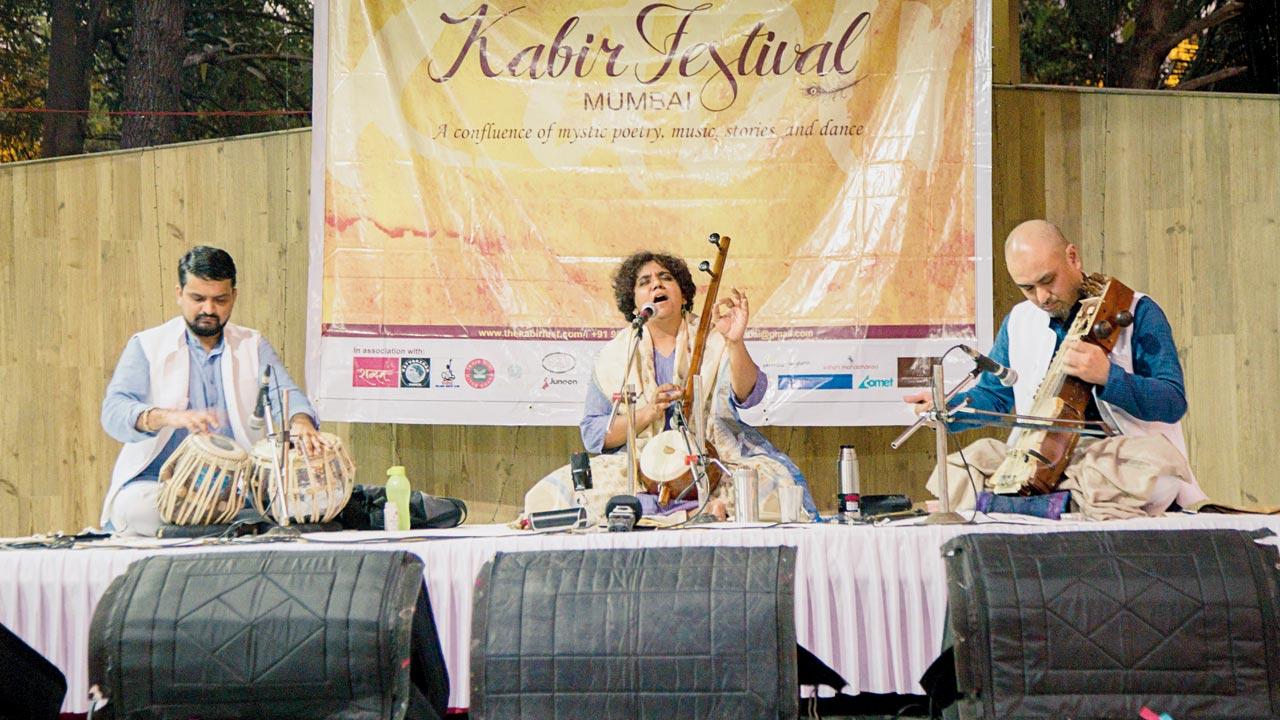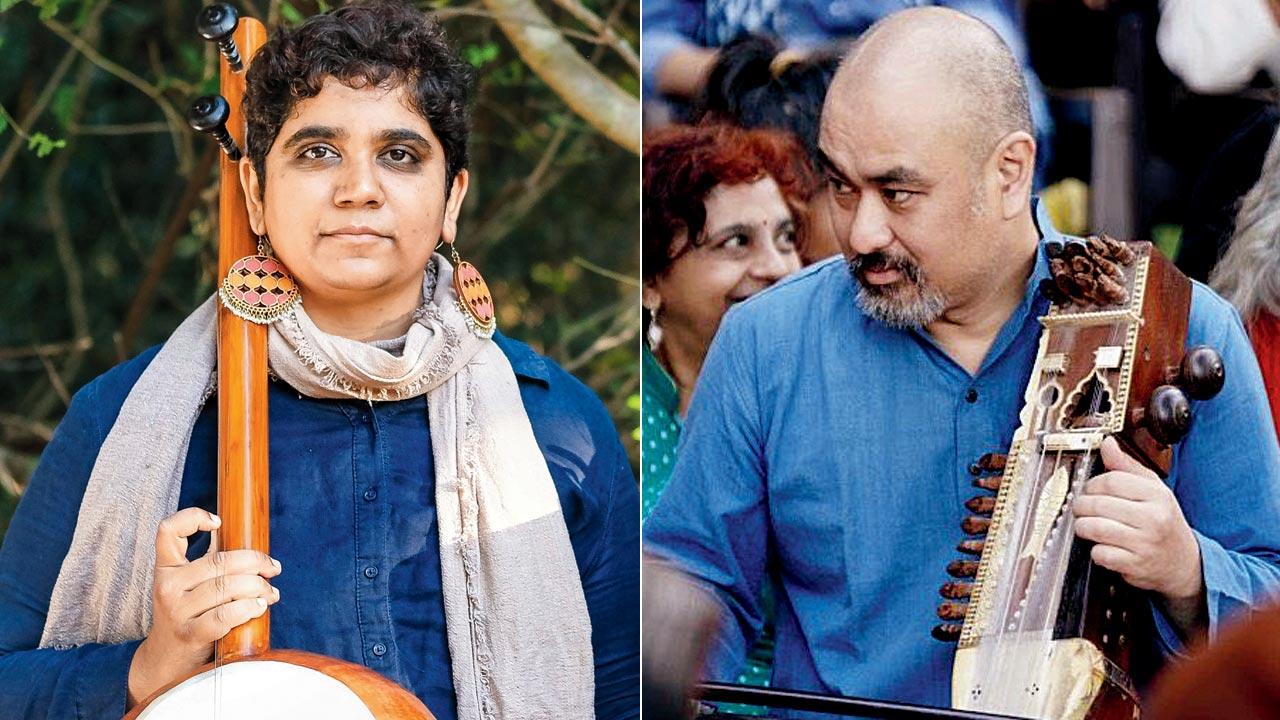The immortal poetry of long-gone female warikari poets will come to life at an immersive listening session that will showcase how their words still ring the truth

Warikaris at Dehu Mandir and Belawdi Ringan in Pune, during the Pandharpur Waari yatra. Pics courtesy/Sandesh Bhandare
Today, the city will witness a unique event where words composed by women waarikar poets will come to life with music as the centrepiece. Vithu Mazha-Women Warikari Voices, a show organised by the Chhatrapati Shivaji Maharaj Vastu Sangrahalaya, will include the performance of mystic songs by Shruthi Veena Vishwanath, Shruteendra Katagade and Yuji Nakagawa. While the state’s warikari tradition is extremely popular and includes poetry by poets across caste and gender, the women warikari saints are not as well known. Shining light on this is Vishwanath, who, since 2015 has been immersed in extensive research of poems and compositions by these women.
ADVERTISEMENT
“These songs or poems have typically been part of the oral traditions, but around the 19th century these volumes of mystical works were compiled in a book called Sakal Sant Gatha [English: the words of all the saints]. These poems are between 400 and 800 years old,” explains Vishwanath, adding that over the course of history, due to patriarchy, gendered notions and caste struggles, some of these female voices have been erased from the oral traditions. “Although they exist in the text, they aren’t sung anymore, and are mainly by women of marginalised castes,” she says.

She hopes that her work will help reclaim these poems and bring them back into the oral tradition; and people will be able to see the Bhakti movement in a different perspective — these are songs of resistance, protest and defiance, all done with extreme love. “The tragedy is that most of these songs aren’t sung anymore because they speak the truth about caste, gender and oppression, which is what the nation is grappling with today,” she says.
Explaining this further with an example, she says Janabai’s poem, Doicha padar ala khandyavari (English: the veil on my head has slipped over to my shoulder), which speaks about the fact that in spite of this, she will fearlessly walk in the market. “This poem is very alive because it is not about just one woman’s veil, it’s about how we are still policing what women wear, be it a hijab or a ghoonghat. Her words are an assertion of women’s rights,” she reveals.
 Shruteendar Koragade with Vishwanath and Nakagawa. Pic courtesy/ Tell-a-Tale Studios
Shruteendar Koragade with Vishwanath and Nakagawa. Pic courtesy/ Tell-a-Tale Studios
Another example is that of Soyrabai, a Dalit woman, whose words spoke about the patriarchal concept of purity and impurity of a woman. She flips this view in a fearless way and sings that such notions and onus are not on a woman, but it’s the fault in the gaze of the society. The artiste points out that this is still relevant. “So, we picked these and other poems for Vithu Mazha as they are relatable even today. In a sense, these are not 800-year-old poems, but living and breathing traditions,” says the composer. Vishwanath has tied the poignant poetry to music with the help of Shruteendra Koragade (on tabla) and Yuji Nakagawa (on sarangi). They have given rhythms and tunes to these poems, without changing the text of the original poems. Some tunes are more traditional, some differ from traditions, but all try to honour the text. “Over the years, I have worked with many musicians to try and find my tribe, in a sense, and their musical sensibilities and personal journey aligns with mine. They have come with questions about their identities and origins in this piece, which makes it special to work with them,” she elaborates.
To suit the audience in an urban centre like Mumbai, Vishwanath has tapped into the multiplicity of languages enjoyed by the city. “I’ve added English commentary keeping in mind its landscape. I am excited to perform at the museum as it’s a place of history, and my work and the show is also about reclaiming history and bringing it back to life,” shares the talented Vishwanath.

The trio have collaborated well, to get a sense and to figure out which sounds and rhythms work best to honour these classic compositions. They travelled to parts of rural Maharashtra to get the pulse of the authentic Waari music. Interestingly, Nakagawa (top, in blue) is from Japan and when asked if he brings Japanese musical nuances to the piece, Vishwanath laughs and adds, “Nakagawa is as desi as one can get. Though originally from Japan, he has been in India for a long time and has Indian sensibilities.”
Through Vithu Maza, the hope is that the woman saints continue to live in the words and their voices are brought back to the mainstream oral traditions.
On Today; 6 pm
At Chhatrapati Shivaji Maharaj Vastu Sangrahalaya, Premchand Roychand Gallery, Kala Ghoda, Fort.
Log on to @csmvsmumbai
Free
 Subscribe today by clicking the link and stay updated with the latest news!" Click here!
Subscribe today by clicking the link and stay updated with the latest news!" Click here!







